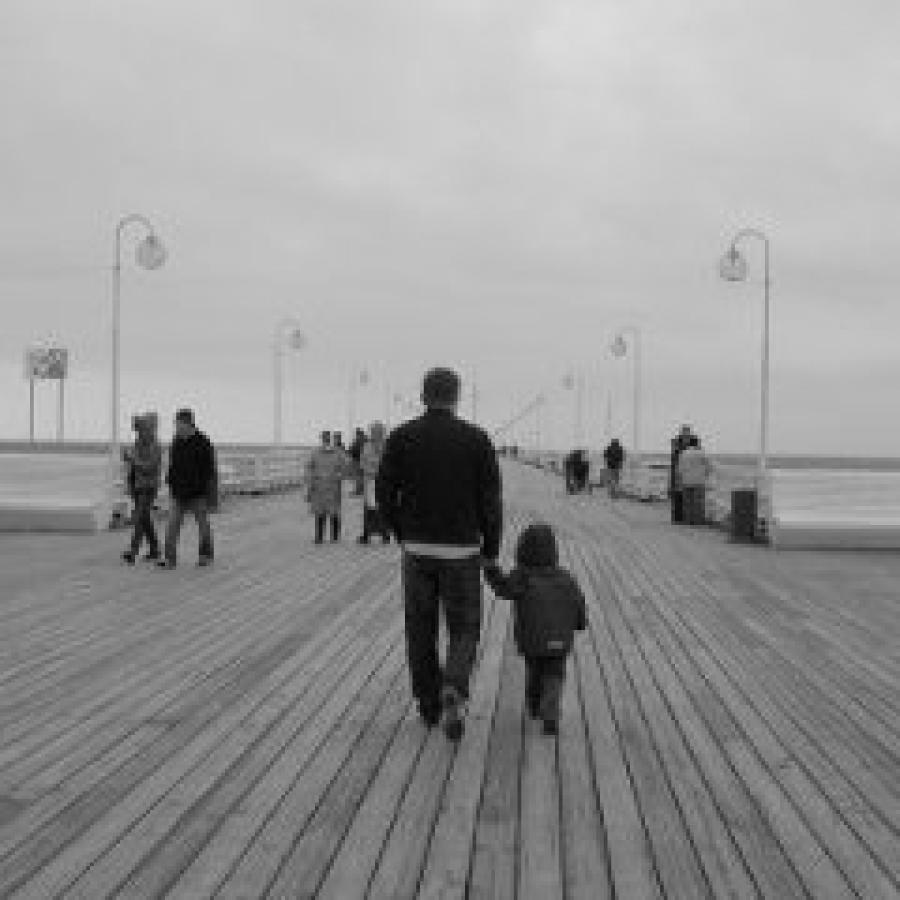From the Archives: Why We Need Dads
Image

Conventional wisdom these days seems to quietly concede that dads are not all that necessary anymore. Just watch a sitcom. One mom (or two) is sufficient for a healthy upbringing. Dads may be great, but are most certainly dispensable.
Due to the mercies of God, dads are sometimes unnecessary. Kids who grow up without a father in the home can develop into strong, successful people. Having said that, principles should not be constructed from exceptional cases. Broadly speaking, kids prosper uniquely when they are afforded the privilege of growing up under the influence of an involved, loving father who acts like a man.
For a somewhat distinct set of reasons, children equally need moms. I’m not denying overlap between the two subsets; nor am I suggesting all dads must fit a precast mold. But qualifiers aside, engaged fathers bequeath unique benefits to the nurture of healthy, well-rounded children. And it’s okay to say so now and then.
Why do kids need dads? The question could be answered from any number of angles—physiological, philosophical, sociological, theological, etc. Permit here a less formal response. Why do kids need dads? Bear hugs. Wrestling matches in the living room. Launching toddlers into the air and catching them on their way down—even if only by one limb. Responding triumphantly to the bloodied knee of a quivering-lipped munchkin looking for pity: “Way to go, kid-o, nice work!” Discussing what’s under the hood of a car and why it matters. Tackle football in the back yard. Demonstrating the fine art of mowing the lawn and cleaning out the garage. Initiating, then providing the calming presence on a scary amusement park ride. Watching a ball game and analyzing it afterwards. Playing with knives. Demonstrating a love for sweaty, dirty work. Telling a kid pointedly: “Get over it,” or “No, you can’t do that.” No monkey-business enforcement of consequences for children who break rules. Teaching the craft of using power tools, raking the lawn, changing a tire, and building a bike ramp. Pedagogy on shaving and tying a tie. Leading hunting, fishing, and camping trips, and adventurous hikes in nature. Teaching teenagers to park the car in the garage. Teaching teens to take responsibility when parking the car in the garage doesn’t go so well. Gruff warnings to the young man showing interest in your daughter. Gruffer words when warding off sleaze balls interested in the same daughter. Enlightening your daughter to the reality that what she sees as a cute outfit strikes guys differently. Warning sons about the destructive powers of pornography. Handling failure and trials with a steady spirit and steely resolve. Showing confidence and faith in God during tough times. Demonstrating the grace and strength of saying, “I was wrong, please forgive me” and “I love you.” Showing appropriate affection to the kids’ mother. Protecting and honoring that same woman before their eyes with persistent fidelity. Bequeathing to the kids the stabilizing roots of family culture, of faith in God, of hope and love.
These depictions of a father’s unique contribution to the nurture of his children are by no means universal, nor are they necessarily prescriptive. They merely reflect an orientation halo and thus acknowledge that dads are not merely moms with hairy legs and balding heads. As a general rule, dad is less intuitive than mom, less socially sensitive, less given to tender nurture. A dad’s skeletal structure will tend to be more angular. His muscular structure will tend to be more suited to bold contraction than to active compliance at the right moment (i.e., he will generally do better running a chain saw; mom will prove more capable at threading a needle or picking up a credit card off a table). Every cell in his body has an X and a Y chromosome compared to mom’s two X chromosomes. Her distinct organs reflect a more naturally nurturing orientation toward children—they grow in her womb, not dad’s; they are suckled at her breasts, not his.
While the societal trend for some time has been to dismiss these physiological differences as insignificant, they actually reflect a creative design that runs to the core of one’s being (Genesis 1:26-28, 2:18, 2:24-25). And they point, then, to the unique role a dad can have in the nurture of his children. Dads are not absolutely essential; but this is not to say they are expendable. When they honorably express their masculinity in the home, their influence on children can prove invaluable. The trouble comes when that potential is squandered by selfish irresponsibility or abusive behaviors. I suspect many who dismiss the role of dads in the home continue to suffer the consequences of their own father’s failures. But the failures of some do not mitigate the potential of others. It is this potential upside that needs to be widely sounded in a culture too willing to usher dads to the periphery of family influence. We need good dads!
Pastor Dan Miller Bio
Dan Miller has served as the Senior Pastor of Eden Baptist Church since 1989. He graduated from Pillsbury Baptist Bible College in 1984 and his graduate degrees include the MA in history from Minnesota State University, MDiv and ThM from Central Baptist Theological Seminary and DMin from Trinity Evangelical Divinity School. Dan is married to Beth and the Lord has blessed them with four children: Ethan, Levi, Reed and Whitney.
- 2 views

Died when I was 50



Discussion